Collaboration, Education, and Hope Resound at CAI’s Event in D.C.
Most of the media reports on Afghanistan and Pakistan revolve around military strategy and the ongoing battles against militant groups. However, there are many more issues and initiatives that are taking place to help the people of these countries receive the tools they need to heal and grow their countries. CAI decided to bring these solutions to light during our event in Washington D.C. on September 21, 2017.
The event brought together thought leaders working in these regions to discuss the more nuanced issues facing these countries and how education can create the long-term solution to many of these deep-seated problems. The topic of the discussion was “Pakistan and Afghanistan: What’s not Being Said?” Through the presentations and discussion that took place afterward, the theme of the night clearly became collaboration.
The speakers included Dr. Christopher Kolenda founder of Kolenda Strategic Leadership and a longtime friend and advisor to CAI; Nikki Whaites, Associate Director of International Programs at War Child Canada; Marvin Weinbaum, Director of Afghanistan and Pakistan Program at the Middle East Institute; and Beth Murphy, Director of Films at the GroundTruth Project.
The event, held at the DuPont Circle hotel, gathered a diverse group of listeners from around D.C. interested to hear more in-depth information on these countries and the work that will bring about positive change in these conflicted societies. From young Afghan and Pakistani immigrants who wanted to hear a new perspective, to seasoned professionals, to military veterans who had been deployed in these areas, guests listened intently during the presentations. They stayed after to engage in lively discussions, meet other people who cared deeply about these regions, and felt a sense of hope for the future.
Collaboration, New Ideas, and Hope
CAI’s Executive Director Jim Thaden opened the evening by introducing CAI and the work the organization has accomplished over the past 20 years. After flying in from Tajikistan earlier in the day, he filled the audience in on CAI’s plans for the next year and some of the programs that provide vocational and educational training for people in Afghanistan, Pakistan, and Tajikistan.
Dr. Kolenda told his story of the deployment to Afghanistan’s Kunar province while serving in the military that changed his life. Exchanging fire with villages near his operating base wasn’t working, and he realized the people he was fighting were the exact people he was trying to help.
“After two months I realized everything we assumed about the enemy and about the situation there was dead wrong. To be successful we needed to think differently,” he told the audience.
After reading Three Cups of Tea, he decided to take an approach he learned in the book – to listen to the people, hear their needs, and help them establish themselves. He left the audience with the notion that if collaboration, listening, and education could change the situation in one of the most hostile areas in Afghanistan, than it could have an impact in the entire country.
Nikki Whaites began her talk with the startling stories of women who had been child brides. The women, she said, were telling these stories at a women’s village organization, a group originally started to provide education, vocational training, and business skills to women who were denied the chance to go to school as young girls.
The women are hungry to start their own businesses, to heal the wounds of the past with skills that lead them on the way to independence and to create a better life for their children through education. The groups help women with microloans to open their own businesses, provide support, and educate them about their rights.
“We need to recognize there is hope for girls’ education. It’s not all negative,” she told the crowd. “The issue of girls’ education in Afghanistan isn’t limited to the education sector. It’s an all encompassing issue looking at the current roles of and attitudes toward women in the workforce and women in public life.”
Dr. Weinbaum provided historical and cultural context to the conflicts in Afghanistan and Pakistan. While acknowledging the complexity of the situation, he offered a concrete sense of hope based squarely on the people of Afghanistan, “There has never been the human capital in Afghanistan that there is there today. They need it to succeed because their lives depend on it.”
He spoke candidly about the tie between Pakistan and Afghanistan saying that if Afghanistan is to succeed, it needs to repair ties with Pakistan. He left the audience with a warning that became a rallying cry, “The future of both of these countries is locked together. If either one of them is destabilized, fails, they both will go down.”
The last speaker of the night was Beth Murphy, director of Films at the GroundTruth Project. After a brief introduction, she shared a clip from her latest film, “What Tomorrow Brings,” about the first all-girls’ school in a very conservative region of Afghanistan. Through the stories of the students and teachers, the film highlights the relationships and collaborations between the community, the teachers, and the students that made the school successful.
Beth used the film as a fundraiser to build a college for the community. During filming she learned that many of the girls couldn’t continue their education when they graduated. The nearest college was too far away, and many of them were too poor. Through the film they raised enough money to build a college in the village, and this spring the first class of girls began their higher education.
CAI board member Alice Thomas, Program Manager at Refugees International, graciously tied the topics of conversation together with the reminder that collaboration, education, and listening to the needs and struggles of others is the solution to the problems facing Pakistan and Afghanistan. She thanked the speakers and encouraged everyone to stick around for discussion and inspiration.
Discussion of the Future
The mood of the room was determined and hopeful as guests greeted one another and began talking about their work and the hope for these countries. Many people had come with a curiosity, and were inspired by the work already taking place to empower women and create access to education.
Zafar Azam is a master’s student at George Mason University and operates a food truck specializing in Afghan cuisine to support himself. He is originally from Afghanistan and became a refugee when his parents fled the Taliban. He attended the event hoping to hear a way forward for his country.
“That evening, sitting there and finding out about Central Asia Institute’s work in Afghanistan brought tears to my eyes,” he recalled. “Listening to each speaker talk about their experiences, my heart was once again filled with hope. I realized that although there are tremendous challenges, including corruption and the security situation, there are also bright spots. There are millions of Afghans who are yearning for change and are making progress towards a peaceful and stable Afghanistan. All they need are a helping hand and encouragement to keep fighting a different type of battle. In that battle, there is no room for negativity and doubt.”
There were many others who spoke with CAI staff and board members who expressed similar sentiment. When the news is full of tragedy and war, it is easy to lose hope, but by coming together and talking about collaboration and the progress that is being made that hope can be restored.
We hope to bring even more people together for future events to talk about the impact CAI and others are creating in these areas. There is hope for the future of Afghanistan and Pakistan through education and collaboration.
If you are interested in learning more about CAI’s efforts in these countries and the changes we are helping to bring, download our latest Impact Report.
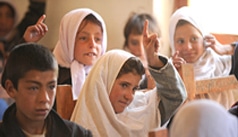
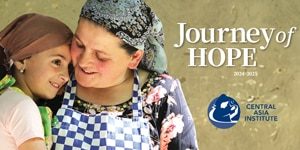

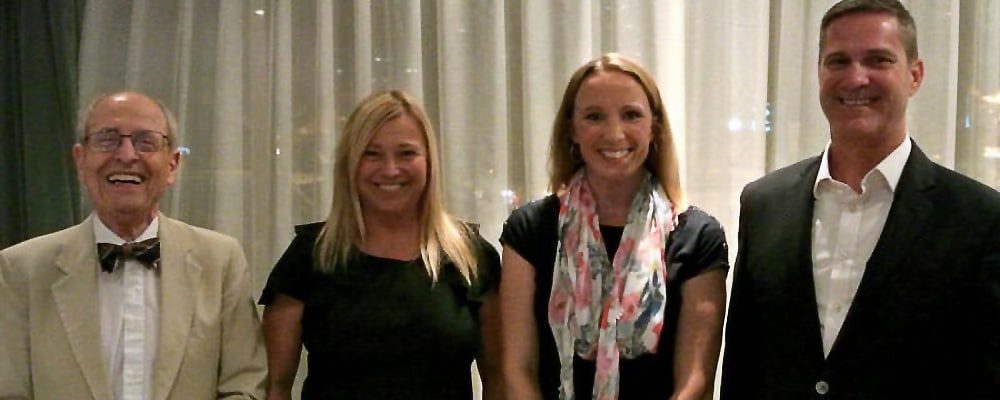



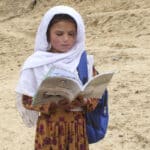
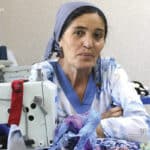
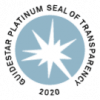


5 responses to “Collaboration, Education, and Hope Resound at CAI’s Event in D.C.”
A greatly informative and enjoyable session but I wonder, as others must, about the cost of the gathering (room rental, food, etc.). Whether the money spent might be better used for teacher salaries and school programs.
Hi Ann,
Thank you so much for your comment. These are great points and were certainly weighed in our decision. There are several reasons we decided to hold this event. A big one was to connect with other thought leaders and people who are have a connection to the areas where we work. Though we operate in Montana, which is much less expensive than operating in D.C., the distance can make it hard to connect with others working or with ties to these areas including other organizations that work in the region, military veterans who may have served, and people who are originally from these countries. It was an important event to bring these different communities together for discussion. We made a budget approved through our board and stuck to it, and we also used it as a fundraiser to help defer costs. While we don’t often hold events, we do find them to be an important part of our communications strategy to spread the word about what we do and raise the necessary funds to make a difference for the future. If you have more questions we would be more than happy to have someone contact you, as it’s important that you know we try to make the best decisions we can. You can email communications@centralasiainstitute with your preferred contact. Thank you again for supporting us and asking important questions.
I would have been happier to learn that some people from CAI countries were there in person. This would make more of an impact than a group of Westerners talking to a roomful of other Westerners. Where are the graduates of the first CAI classes? What have they gone on to do in life? What impact is their education making on their communities? These graduates should be allowed to tell their own stories first-hand. These would make more of an impact on audiences than second-hand accounts.
Hello Therese,
Thank you for your comment and your ideas for future events. While it would be incredible to bring some of the girls over to share their stories, the costs associated to bring them over, away from their families and communities, would be difficult as well as the logistics for visas. This would mean diverting money and resources that would otherwise go to many more women and children in these areas. We do agree that sharing the girls’ lives, from their own perspectives, is something important for donors and supporters like you who fell in love with the causes through their stories. As technology improves, we have been focusing on collecting these updates so you can see how they have progressed. In our next Journey of Hope magazine, we’re sharing a letter written by Siama who was one of the first girls in her village to go to school. Her account of her life in her own words is incredible. Stay tuned next week for an update of Hareem, one of the scholarship students we highlighted two years ago. You can also read “In Her Own Words,” a letter by a scholarship student originally written in Dari that was published on the blog at the end of July https://centralasiainstitute.org/in-her-own-words-an-honest-letter-from-a-scholarship-student/. We will continue to share with you the stories of the people you are helping, and those who you have helped in the past. Thank you for your support throughout the years, and your ideas for the future.
Great article. I do disagree with this statement “…if Afghanistan is to succeed, it needs to repair ties with Pakistan…”. It’s not Afghanistan that needs to ‘repair ties’, but Pakistan. Pakistan has been housing, supporting and promoting terrorism against Afghanistan. Pakistan needs to stop its support for terrorism if it intends to have a friendly neighbor. The US intelligence services is very aware of who in Pakistan and where in Pakistan the terrorists are trained and lodged. Afghanistan will take every measure necessary to fight against Pakistani sponsored terrorism.